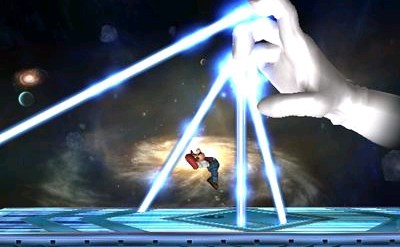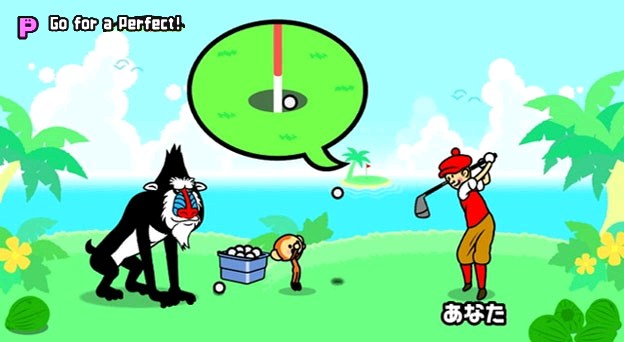Thursday
Jul122012
Complexity From Simplicity pt.1
 Thursday, July 12, 2012 at 10:30PM
Thursday, July 12, 2012 at 10:30PM Recently, I've talked a lot about deep and open gameplay. With so many viable options that plug into such dynamic systems that output so many different gameplay possibilities, there's a lot to explore in deep, open games. And as I explained in my series Depth From Complexity there's a lot of meaning that is conveyed purely through the interactivity of deep gameplay systems. But what can be said about linear, straightforward, and simple games? Turns out there's a lot to understand about simplicity as well. This series will explore the elegance and complexity of simplicity.
I've always had a great appreciation for the simple things in life. In music I enjoy dwelling on a simple song, a short melody, or even a single note. In literature, my favorite poems stand side by side with much larger works. I have a collection of books by Dr. Seuss, and I often mull over a single word including all of its denotations, connotations, near rhymes, and phonetic peculiarities. I plan articles I don't have time to write about complex films and simple commercials alike (rememby my mixed-media blog?). And as far as video games go, just from my GOTY lists alone it's clear that I value simple games just as much as complex games. (For more on the bias some have for complexity see here.)

Mario meets Master Hand.
So what makes simple games interesting? What can we dig into with simple gameplay experiences that are inherently light on complexity? The best way to get to the heart of this issue is by first understanding the challenge of simple, straightforward gameplay.
Challenge is very important to gameplay because of the way it appeals to certain intrinsic motivators that create fun experiences. Challenge is the result of goal oriented, skill-based interactivity. When winning doesn't come easy we have to exert effort to overcome the contrary forces (challenge). While I use the word challenge here in a general sense, what is challenging difficulty-wise differs for each player. Overall, challenges that are too easy or too hard are not what most gamers want from their gameplay experiences (see my series The Zero-Sum Funomaly for more). For this reason, player controlled difficulty is crucial in allowing players to fine tune their experience (flow zone). The idea is there's a difficulty sweet spot that we find and try to maintain when we play.
These ideas alone prove that the reason we play and enjoy games isn't only about winning. Sometimes we accept harder challenges because we find increased difficulty more fun, interesting, and rewarding. Sometimes we use powerups or other methods to undermine challenges. If winning was all that mattered, we'd all select "very easy" difficulty modes to maximize our enjoyment. Compared to deep, open gameplay challenges, straightforward challenges tend to be easier due to their low complexity and clearly presented scenarios. What you see is basically what you get with little to learn and no surprises. Does this mean that simple games can't engage us? Regardless of the difficulty level of simple gameplay, it's clear that there are other, greater experiences to strive. To illustrate this point, I'll use my experience learning the piano.
The Point of Playing
Maybe it's just me, but I never thought the point of playing piano was to exercise my fingers, collect praise and compliments from the audience, or even to press the right notes with the right rhythms. Since the very beginning, I always thought the point of playing piano was to make music and in doing so understand myself and the composers more clearly. I must have inherited this attitude from my father. As I grew up he would always press on me to play simpler songs with perfection instead of songs beyond my skill level with mistakes. Because of these experiences, I've always known that playing piano is something that is done in the moment for itself. In other words, I make the most of making music no matter how simple the song is or how much better I strive to become. And because practice makes permanent, it's important for me to keep this focus even as I practice.
I take great effort to avoid becoming an ambitious failure of a musician. I see little value in biting off more than I can chew because doing so would only reflect my rashness, impatience, and immaturity. Because I truly appreciate music for what it is, I've learned to appreciate it in its simplicity and in its flawless presentation. A performance riddled with mistakes is no musical performance at all. As much as we value passion, drive, and the desire to excel, these things don't prevent us from making mistakes; they don't make music sound better. I know now that sometimes putting my best foot forward means lowering the difficulty level of the songs I play.
I have this same attitude with all of my arts and hobbies. For video games in particular, I don't see getting to the victory screen no matter what as the point. The point is to learn and play on a journey to discover more about myself and about the developers. We do this mainly by engaging with gameplay challenges in two main ways; learning and execution.
Learning is the first step to in engaging in all skill-based activities, and deep or complex games offer a lot for players to learn. As players engage with these games, the pendulum swings back and forth between moments of learning and moments of execution. With complex, deep games there tends to be a lot of of complexity to design challenges around and keep this cycle going. With every rule players may have to spend time learning before proceeding. Simple, straightforward games aren't like this. Through the clear presentation of the challenge and low complexity, the focus of the simple gameplay challenges shifts away from learning and is put almost entirely on execution. And within execution there's an entire range of engaging experiences to explore.
The Focus on Execution
Execution is a core part of all gameplay experiences because execution is how we interact with games. Using mechanics and making informed decisions is execution. Once players have learned what they need to know about a challenge, the mastery of oneself becomes the focus. Simple, straightforward gameplay highlights this kind of experience better than deep, open gameplay. The reason deep, complex games don't focus on execution as well as simple games is because deep gameplay system tend to be very dynamic. There's so much to learn and understand about these games that one may never be completely done learning. Put another way, there will always be additional complexities that may affect how you go approach or execute on a challenge. One's failure to succeed may be because of lacking knowledge or poor execution. Simple gameplay presents a clear challenge to inform the player then asks a very simple question: "can you do this?"
A common complaint of straightforward gameplay challenges is that players "get it" meaning that they quickly and easily figure out what to do. This is a ridiculous complaint to make about a straightforward challenge. Easily "getting it" is what straightforwardness is all about. Every gameplay challenge doesn't need to be a mystery or a puzzle. Clearly by severly reducing the learning needed to make fully informed decisions for a straightforward challenge, the focus is put on execution.

Go For A Perfect! That's always the plan.
Mastery
If your goal is to embrace gameplay for all of its unique and powerful qualities or if your goal is to learn about yourself and the developers, then you can't be adverse to challenge or mastery. Mastery and challenge are two concepts that are connected in the minds of most gamers. Often times we rely on the built in gameplay challenges to set the bar for the level of mastery we can achieve whether through a rating system that evaluates our performance, medals given for collecting enough secrets, a time trial mode, special side quests, or achievments. But even without these features we know that we can always improve at any skill-based game with a high enough skill ceiling. And in my experience, I've found that mastery and perfection is rarely easy even for the simplest, most straightforward games. So if getting more out of simple games is a matter of challenge, then we only have to strive for mastery.
It's funny how much skill it takes to be perfect or even close to perfect. Think of yourself like an execution machine. Once you've downloaded all the instructions into your head, once you've learned everything you need to know, it's completely on you (the machine) to execute perfectly. Even when playing the same piano song I've known for years or the same levels in Super Mario Brothers over and over and over, I find that the me in the moment is always a challenge to overcome, to control, and to focus to the task. This me is not static. It's always changing like a moving target that I must constantly adjust to. And when I'm hungry, sleepy, or otherwise distracted it affects my performance. This is what I mean by using a gameplay experience to see ourselves more clearly. Striving for mastery not only makes our shortcomings clear, but the attitudes we have and the execuses we make becomes clearer as well.
In part 2 we'll look at the beautiful unraveling of execution.


Reader Comments